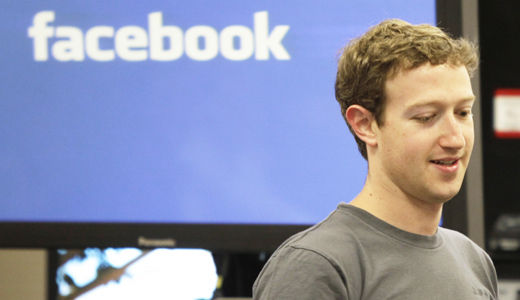
Social networks like Facebook, Twitter, and the new Google+, share key traits: users have profile pictures, can post status updates, and can essentially access the sites from anywhere, whether on a cell phone or an iPad. Now, says International Business Times, too much time spent on these sites can cause teens to develop narcissistic tendencies and anti-social behavior, according to a study at California State University.
Larry Rosen, a psychology professor, conducted the study, in order to examine social media’s impact on interaction between preteens and teenagers. What he saw was that it seemed to have a negative effect on people in this age group. Rosen linked social networks to potential anxiety, depression, and a myriad of other possible disorders.
“While nobody can deny that [sites like] Facebook have altered the landscape of social interaction, particularly among young people,” he said, “We are just now starting to see solid psychological research demonstrating both the positives and the negatives.”
The problem, it appears, is that social media has infiltrated every aspect of daily life, and in each area could cause potential roadblocks.
Education
Shorter attention spans and distraction caused by social media also led to increased absence from school and lower grades, the study noted. Sleeping problems also arose, contributing even further to a dip in education.
Among those who got lower grades, said the study, most checked Facebook at least once during a 15-minute study period. Among those who had Facebook open on their computers during that study period, lower reading retention rates were observed.
As summed up in a report by PC Mag, “updating your [Facebook] status isn’t really going to help you ace that history test.”
Cyber-bullying
Trolling, for the unaware, means posting inflammatory or provocative remarks on a social network or forum to trigger an emotional response, deliberately provoking other users or readers into arguing back. It is a classic form of cyber-bullying that causes emotionally vulnerable children and teens a bit of grief.
According to Nonprofit Tech, internet trolling has become so commonplace that users aware of the outbreak now go as far as to avoid viewing Facebook status updates, which, suggested the report, defeats the entire purpose of social networking altogether, and seriously calls into question the benefits of the “status update.”
Cell phones
According to PC Mag, children should perhaps stop checking Facebook and Twitter on their phones, or at least do it less often. A new study warned that constantly looking at social media updates on smart phones, for instance, could create a worrisome ‘checking habit.’
However, found the study, “smart phone-related habits are not yet perceived as problematic. Some consider it an annoyance, but many positive experiences are mentioned as well.” The study added that beneficial aspects of social networking via cell phones included, “entertainment, time-killing, and diversion.”
Rosen, according to PC World, furthermore noted that there are also a number of positive aspects to the social media experience overall. One was his surprising observation that young people can gain “virtual empathy,” which can then be carried over into real life. He added Facebook and similar networks could also be beneficial tools for those who are introverted or nervous, allowing them to connect with people and achieve a sense of community. Furthermore, if utilized properly, social networks can be used as teaching tools.
As for younger children, Rosen added, parental website monitoring wasn’t necessarily the answer. “If you feel that you have to use some sort of computer program to surreptitiously monitor your child’s social networking, you are wasting your time. Your child will find a workaround in a matter of minutes.”
Ultimately, Rosen believes parents should “do more listening than lecturing” when handling this type of situation.
“The ratio of parent listen to parent talk should be at least five-to-one,” Rosen said. “Talk one minute,” he advised, “and listen for five.”
Photo: “Facebook CEO Mark Zuckerberg in Palo Alto, Calif.” Paul Sakuma/AP.










